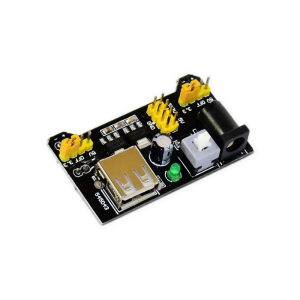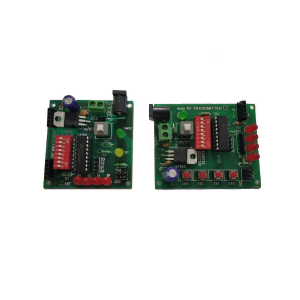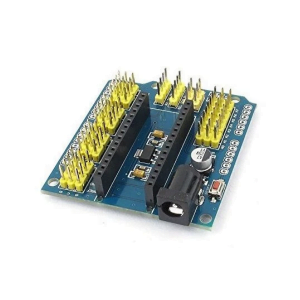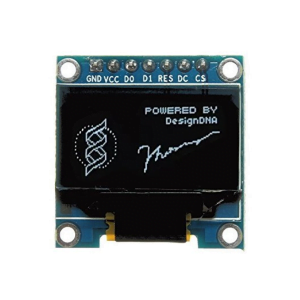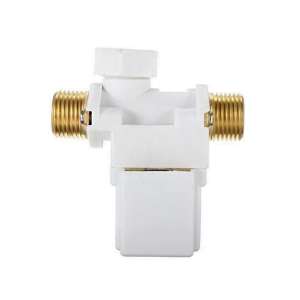Description
This motor driver is perfect for robotics and mechatronics projects and perfect for controlling motors from microcontrollers, switches, relays, etc. Perfect for driving DC and Stepper motors for micro mouse, line following robots, robot arms, etc.
An H-Bridge is a circuit that can drive a current in either polarity and be controlled by Pulse Width Modulation (PWM).
Pulse Width Modulation is a means of controlling the duration of an electronic pulse. In motors try to imagine the brush as a water wheel and electrons as the flowing droplets of water. The voltage would be the water flowing over the wheel at a constant rate, the more water flowing the higher the voltage. Motors are rated at certain voltages and can be damaged if the voltage is applied to heavily or if it is dropped quickly to slow the motor down. Thus PWM. Take the water wheel analogy and think of the water hitting it in pulses but at a constant flow. The longer the pulses the faster the wheel will turn, the shorter the pulses, the slower the water wheel will turn. Motors will last much longer and be more reliable if controlled through PWM.
Features:
- Driver chip: L298 dual H-bridge driver chip.
- Operates up to 35V DC
- Drive part of the peak current Io: 2A / Bridge
- Logical part of the terminal power supply range Vss :4.5V-5.5V
- Logical part of the operating current range: 0 ~ 36mA
- Maximum power consumption: 20W
Pins:
- Out 1: Motor A lead out
- Out 2: Motor A lead out
- Out 3: Motor B lead out
- Out 4: Mo (Can actually be from 5v-35v, just marked as 12v)
- GND: Ground
- 5v: 5v input (unnecessary if your power source is 7v-35v, if the power source is 7v-35v then it can act as a 5v out)
- EnA: Enables PWM signal for Motor A (Please see the “Arduino Sketch Considerations” section)
- In1: Enable Motor A
- In2: Enable Motor A
- In3: Enable Motor B
- In4: Enable Motor B
- EnB: Enables PWM signal for Motor B
Usage:
H-bridges are typically used in controlling motors speed and direction but can be used for other projects such as driving the brightness of certain lighting projects such as high powered LED arrays.
NOTE:
Make sure you have all of your grounds tied together; Arduino, Power source, and the Motor Controller.
The PWM Pins are unnecessary if you do not want to control PWM features.
*Product images are shown for illustrative purposes only and may differ from actual product.





